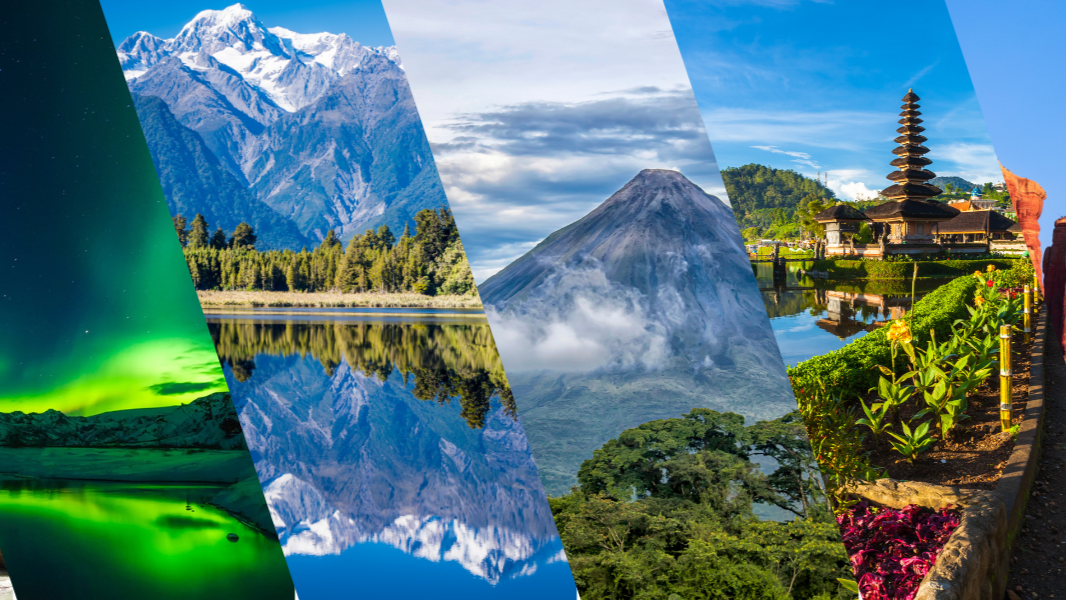Travel, in its many forms, has long been one of the most transformative experiences available to humankind. From the simplicity of weekend getaways to long-term, immersive journeys that span continents, travel provides a unique opportunity to learn, grow, and engage with the world in ways that simply staying in one place cannot replicate. In the context of an increasingly interconnected and globalized world, travel has become more accessible, varied, and impactful than ever before.
The Importance of Travel in a Globalized World
In a world where cultures and societies are more interwoven than ever, travel allows us to experience the diversity of the human experience. Each culture offers something distinct—from food, language, and art to customs, traditions, and ways of life. By stepping outside our comfort zones and exploring new places, we gain a deeper understanding of the world and its people. This broader perspective fosters tolerance, empathy, and an appreciation for diversity.
For instance, a trip to a bustling market in Morocco, a quiet Buddhist temple in Japan, or a scenic vineyard in Tuscany does more than just offer picturesque views or a change of scenery. It provides an opportunity to learn about history, heritage, and social practices that shape those regions. Understanding the differences between people can ultimately break down barriers and build bridges, contributing to a more peaceful and connected world.
Personal Growth Through Travel
Beyond the cultural enrichment, travel also plays a crucial role in personal development. It challenges individuals to navigate unfamiliar territories, make decisions on the fly, and step into situations that push them out of their comfort zone. These experiences, whether it’s negotiating with a local vendor, finding your way through a maze of foreign streets, or understanding a new language, can increase confidence and resilience.
For many, travel becomes a path to self-discovery. Being in an entirely new environment gives one the space to reflect on their own life, goals, and priorities. The absence of daily distractions and the novelty of new places often lead to moments of introspection, allowing travelers to gain clarity on personal values and aspirations. This sense of freedom and perspective often carries back home, influencing day-to-day decisions, relationships, and career choices.
Travel as a Tool for Education
Travel also serves as an important educational tool. The classroom may teach history, but traveling to the actual landmarks where history was made brings those lessons to life in a way no textbook can match. For example, walking the cobbled streets of Rome’s ancient ruins or standing at the foot of the pyramids in Egypt allows travelers to immerse themselves in the past and witness it firsthand. This type of experiential learning is far more effective in creating lasting memories and a deeper understanding of the subject matter.
Furthermore, travel fosters the development of critical life skills such as problem-solving, adaptability, and communication. When faced with the challenges of navigating a new culture or environment, travelers must learn to think creatively and overcome obstacles. These skills are valuable not just during the trip but also in one’s personal and professional life.
The Benefits of Sustainable Travel
As the world becomes more aware of the environmental impact of human activity, sustainable travel has emerged as a key consideration. This approach focuses on minimizing the negative impact of tourism on the environment and local communities while maximizing the positive effects. Sustainable travel involves choosing eco-friendly accommodations, supporting local businesses, reducing waste, and respecting the natural and cultural heritage of destinations.
Eco-tourism has gained popularity in recent years, with travelers opting to visit destinations that prioritize conservation and preservation. Whether it’s visiting national parks that protect wildlife or participating in conservation efforts in rainforests, sustainable travel offers a chance to explore the world without harming it. Moreover, this kind of travel promotes cultural preservation, as local communities benefit directly from the tourism dollars that come their way.
The Rise of Digital Nomadism and Remote Travel
The rise of digital technology and the global shift toward remote work has made it possible for more people to travel and work at the same time. Digital nomadism, which refers to a lifestyle where individuals work remotely while traveling, has gained traction in recent years, especially among millennials and Gen Z. With the ability to carry out most work-related tasks online, many people are no longer tied to a single location and can explore the world while continuing their careers.
This shift has also led to the rise of “workations,” where people combine work with leisure travel. Digital nomads may spend a few weeks or months living and working in an exotic location, blending productivity with the benefits of exploring a new destination. Whether it’s a beach in Bali, a city in Europe, or a mountain retreat, the ability to work from anywhere has allowed travel to become more integrated into everyday life, giving people the freedom to experience the world on their own terms.
The Future of Travel
Looking ahead, the future of travel is likely to be shaped by technological innovations, such as virtual reality (VR), artificial intelligence (AI), and advancements in transportation. While these technologies will make travel more accessible and efficient, they may also change the way we interact with destinations. For example, VR could allow people to experience far-off places from the comfort of their homes, offering a preview of what a trip might be like before committing. Similarly, AI could be used to offer personalized travel recommendations, making it easier to plan customized trips based on individual preferences.
Despite these advancements, the core essence of travel will likely remain unchanged: the desire to connect with new places, cultures, and people. As long as people continue to seek adventure, learning, and growth, travel will remain one of the most powerful tools for broadening one’s horizons and enriching one’s life.
Conclusion
In an era of rapid change and connectivity, travel remains one of the most meaningful ways to gain insight into the world. Whether for leisure, personal growth, education, or professional purposes, travel allows individuals to experience new cultures, build relationships, and challenge themselves in ways that staying in one place simply cannot. In a globalized world where connections are more important than ever, travel is not just a luxury—it’s a powerful tool for fostering understanding, empathy, and personal transformation.

















